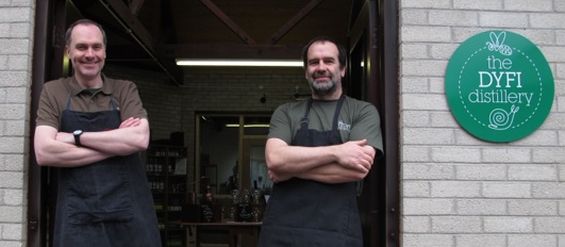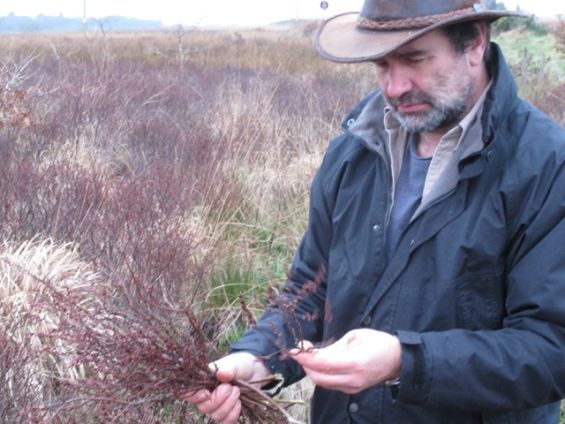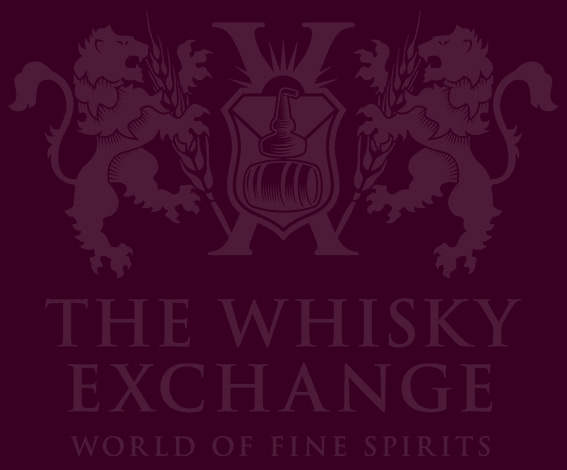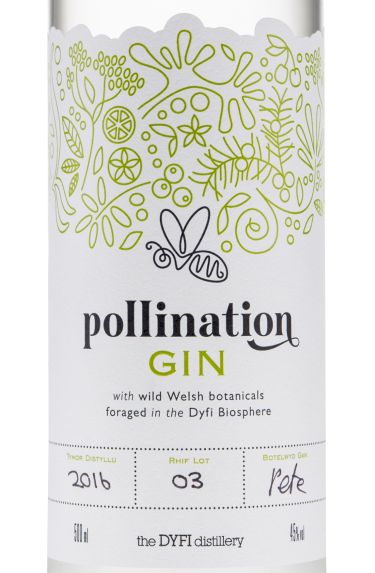Pollination Gin is an exciting new venture from brothers Pete and Danny Cameron. Many of the botanicals, including lemon balm, chamomile and rowan berry, are foraged locally, in the Dyfi Valley in mid-Wales, on the edge of Snowdonia National Park. The brothers are also planning a winter gin, Hibernation, which we hope to stock as the weather turns colder later in the year. We caught up with them to find out more…

Danny (left) and Pete Cameron, the brothers behind Pollination Gin
What’s the story behind Pollination Gin?
Pete: ‘Danny and I were chatting over a pint two years ago and talking about what we’d each been up to over the years – from my own farming, foraging and beekeeping, mixed up with environmental science and other things, to Danny’s many years of championing small wine producers and judging at international wine and beer competitions. It just seemed logical to put these things together.’
Why the Dyfi Valley?
P: ‘I’ve lived and worked in this area for nearly 35 years, and being here was certainly the main catalyst for the project. Danny was banging on about the water quality in the valley (we have a private spring here), and this botanical “Garden of Eden” that we could draw upon. Looking back, we had wonderful innocence about the possibilities, and just looked at an opportunity to try and create this sensory journey through the Dyfi Valley.’
There are hundreds of new gins appearing on the market – what’s different about yours?
Danny: ‘There has never been a better time to be a gin lover, but we decided from the start that we wanted to create a gin with a genuine sense of place, using a complex, wild-foraged bias for our distillation. Every botanical is there for a reason, which is perhaps why it took us two years to develop the right balance of flavours.’
What’s your suggested serve?
P: ‘Pollination makes a pretty mean Martini, although as a 1:3 G&T, it keeps a very good integrity of flavour, too. A sprig of dill and a few lightly bruised juniper berries, plenty enough not to distract things in the glass too much.’
What’s the secret to a good gin?
D: ‘We have lost count of the number of gins we tasted and calibrated while we were developing the distillery. The ones we kept coming back to were ones which have a stamp of uniqueness derived from where they come from.’
Which mainstream gin is Pollination closest in style to?
P: ‘In terms of attitude and approach, if not directly flavour, I think we have some similarities to The Botanist, Monkey 47, Ferdinand’s and St George Terroir.’
How will your wintry gin, Hibernation, differ from Pollination in style?
D: ‘We’ll use a fundamentally different botanical recipe for Hibernation, which will include wild crab apples and lingonberries, and will then receive a short ageing in a white-port barrel. I’m not sure this has been done before, but it makes complete sense in my head.’

Pollination Gin’s botanicals are all foraged locally
How has the decline in juniper bushes across Wales (as across the UK generally) affected you?
P: ‘Juniper is in severe retreat all over the UK, and as a craft distiller we think that gives us responsibility to do something about it, so we have started a juniper regeneration project here in Dyfi. We’ll use some of the profit from the first batches of Pollination Gin to take that to another level.’
Pollination Gin is available to buy here from The Whisky Exchange website.







 Enjoy responsibly
Enjoy responsibly
Comments
#Whisky Pollination Gin – embracing the Welsh spirit: Pollination Gin is an exciting new venture from brother… https://t.co/wNj9KMGqqt
Pollination Gin – embracing the Welsh spirit https://t.co/kcuGbRcpKR https://t.co/or6RabyTVC
Pollination Gin – embracing the Welsh spirit https://t.co/XDxliAuG4o via @whiskyexchange
RT @WhiskyExchange: The lowdown on #PollinationGin, a great new Welsh gin from @DyfiDistillery – https://t.co/44uUTzYG1m
#Whisky blog: Pollination Gin – embracing the Welsh spirit – Pollination Gin is an exciting new venture from br… https://t.co/szbI4oIHfy
@WhiskyExchange many thanks for the blog, and hope it’s an interesting read for any gin drinkers out there!
RT @WhiskyExchange: The lowdown on #PollinationGin, a great new Welsh gin from @DyfiDistillery – https://t.co/44uUTzYG1m
RT @WhiskyExchange: The lowdown on #PollinationGin, a great new Welsh gin from @DyfiDistillery – https://t.co/44uUTzYG1m